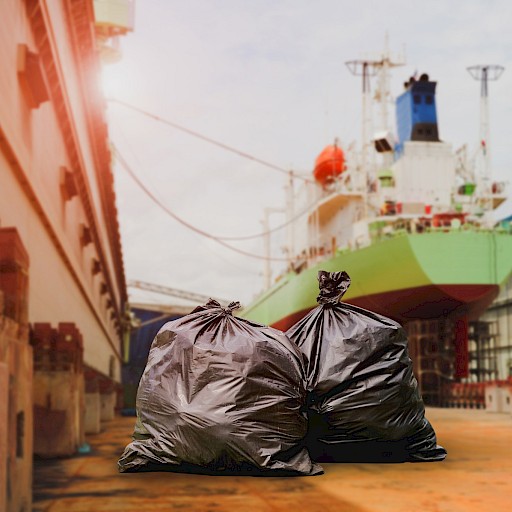B.1.1 Harmonise practises related to the provision and use of Port Reception Facilities
Action Theme: Theme B: Actions to reduce sea-based sources of marine litter
Action number: B.1.1
Action Title: Harmonise practises related to the provision and use of Port Reception Facilities
Lead Party(ies): Belgium with support from Netherlands, Portugal and KIMO
Image: ©Shutterstock
What is the issue?
Shipping activities, including fishing and recreational boating, are a significant source of marine litter. Although there are already international (e.g. MARPOL) and regional (e.g. EU PRF Directive 2019/883) regulations in place aiming to improve the availability and use of Port Reception Facilities (PRF), there is still room for improvement when it comes to its practical implementation, especially regarding the collection of waste from fishing vessels and recreational craft.
As the current regulatory framework on the management of waste from ships still leaves room for interpretation, also the collection and treatment of waste from ships, including fishing vessels and recreational craft, is done in different ways. Based on identified best practices, a more harmonized approach within the OSPAR area may improve the delivery and treatment of waste from ships, and will therefore not only reduce littering at sea but also enhance the transition towards a more circular waste management.
What has OSPAR done?
This action will assess possible areas for harmonized practices related to the provision and use of PRF within the OSPAR area, and subsequently to identify needs for further action. Although the scope is not limited to it, the priority focus will be on practices related to waste from fishing vessels and recreational craft, including the provision of PRF for passively fished waste and the implementation of fee systems.
Final outputs and published reports
This action aims to deliver outputs to include the identification of good practices related to the management of facilities for collection of waste fishing gear to support progression towards a circular lifecycle for fishing gear, with a view that these good practices may be transposed into an OSPAR guidance document.

